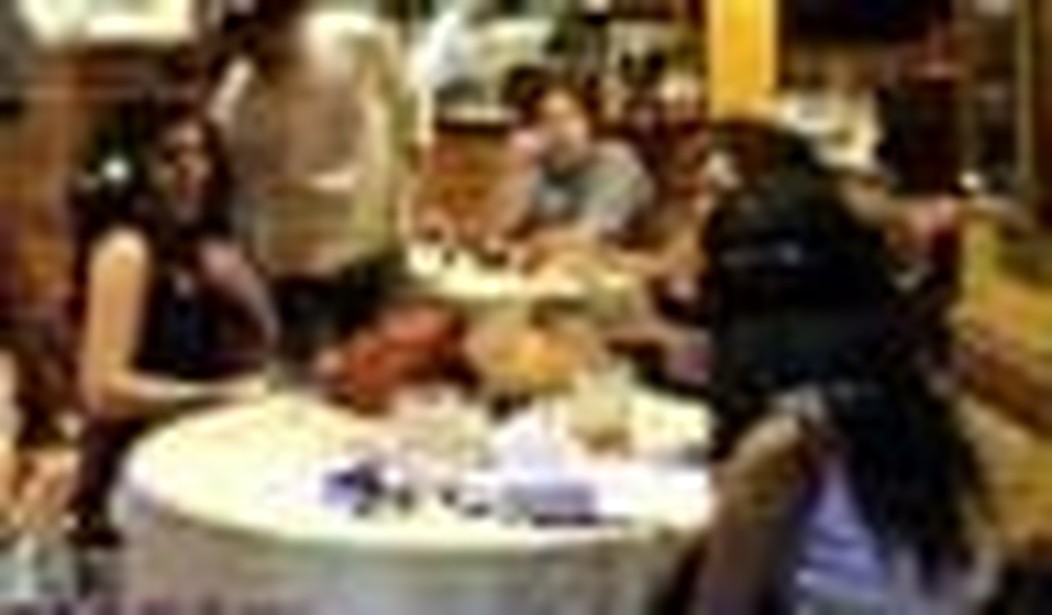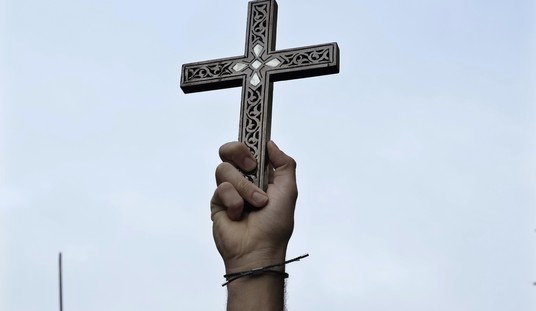The car bomb that exploded last weekend in the Gaza Strip killed not only six Palestinians, but seems to have completely wiped out any hope of ending the ongoing strife between Hamas Islamists and Fatah secular loyalists.
Tensions have greatly increased since the incident. According to sources in Gaza, Hamas officials have set up roadblocks across the Strip to check for guns, explosives, and suspects. The atmosphere of fear and suspicion in the early days of the Hamas takeover has returned to the streets and at least six people were wounded last Sunday as clashes broke out in Gaza City after Hamas-run security forces battled members of the Army of Islam group.
In the West Bank, the story is more complicated. While the Palestinian political world remains in turmoil, the West Bank still struggles for normality — and achieves it, but only selectively. While northern West Bank cities like Nablus and Jenin remain tense, in the heart of Palestine the city of Ramallah seems more effervescent than ever — full of tourists, crowded coffee shops, and active daily life even as the headlines spell trouble; it is as if the city is in a strange quiet before a storm.
The violent escalation over the past week may challenge Palestinian and Israeli analysts who are currently asking themselves whether the situation can deteriorate even more, but the news doesn’t seem to bother Ramallah’s citizens. Many new and trendy Western-style coffee shops and restaurants have opened this summer, tourists came back to the streets around al-Manara Square, and despite the price index high of 10.20% during the first quarter of the year, according to the Palestinian Central Bureau of Statistics, commerce is buzzing.
It’s easy to notice a huge variety of languages, cultures, and Western faces among the crowded tables of Cafe de la Paix, next to Ramallah’s city hall. Pilgrims, foreign NGOs’ personnel, journalists, and Palestinians from other West Bank cities have found a perfect place to spend some quality leisure time. The peace is broken only when nearby mosques play the muazzin calls for prayers.
Palestinian analyst and businessman Sam Bahou says the city is definitely going through a “five-star occupation,” pushed by the resumption of hundreds of millions of dollars received by the Palestinian Authority by international donors. Besides that, the recent high oil prices have created additional revenues for oil-rich countries like Qatar and other Gulf nations, which are investing: music festivals and other cultural activities haven’t been so lively in the past few years, says Mohammad B, a shop owner.
“I know it sounds like a cheap cliché, but trust me, it’s true. Life here can be good and we are working to make it a better place. Even though there’s no extra money in the Palestinians’ pockets, at least in Ramallah we still can have some fun, go out for a good dinner, watch a movie. If it depended on politics and politicians, we would sit at home in deep depression. We have to improve our lives ourselves. We can’t stand this political impasse anymore, so trying to have a normal life is kind of an obligation. We have fun, move forward, and forget the official mud we are immersed in. If we can’t go to Manhattan, we at least decided to bring a bit of Manhattan here,” he laughs.
While the Gaza Strip tensions have already reached the northern West Bank, with at least 35 detentions of Hamas affiliates by Fatah loyalists in Nablus, Jenin, and Tul Karem, Ramallah’s residents still insist on enjoying the summer.
The blasé attitude seems to have infected even the biggest symbols of the Palestinian intifada, such as Fatah leader Zacaria Zbeide. PJM spoke exclusively to him after he left his guarded bunker in the Jenin refugee camp for the first time in eight years to look for an ophthalmologist in Ramallah. After receiving a pardon from the Israeli government in a deal reached with the Palestinian Authority, the popular leader of the Al-Aqsa Martyrs Brigade seems tired of fighting.
During the three-day visit to Ramallah, Zbeide was received as a hero by the citizens. Hosted by a senior Fatah affiliate, he said he was relieved: it was the first time in the past years he’d left his home without looking to the skies, fearing an Israeli plane would be hovering looking for a chance to eliminate him.
“I’m not wanted anymore and I’m happy for this. I don’t care about the Palestinian Authority and the Hamas fight. They only talk and think about their own political interests. They completely forgot the people’s needs. After Arafat we really have no leadership. I’m a military leader and I’m very proud I am alive as the Israelis tried to kill me many times and failed. But I’m concerned about the future. It’s not the political Fatah-Hamas infighting that matters, but the Palestinian people. We are destroying Palestinian kids’ childhood and future and it’s unacceptable and unbearable. If we carry on like this, I can foresee a third Intifada coming. And if there’s a need, I won’t join as a political leader, but a military one.”
While many fear Hamas-Fatah clashes could spread to the West Bank, Israel has its own worries. Shin Bet chief Yuval Diskin has expressed deep concerns that Hamas is rearming and turning into a real threat to security in the south of the country. During the government’s weekly cabinet meeting this week, he reported that weapons smuggling to the Gaza Strip has sharply increased in the past months and at least four tons of explosives, Qassam rocket material, and 50 anti-tank missiles have been smuggled into the Strip through tunnels connecting it to Egypt.
Ahmad Yousef, Hamas leader Ismayil Hanieh’s main political advisor, declared in an article written for Palestinian news agency Maan that despite the current atmosphere, “more than any time before, it is suitable for launching a campaign for national dialogue between the rival factions.”
The Palestinian Authority is clearly making huge efforts to prevent the Hamas-Fatah crisis from escalating.
Palestinian President Mahmoud Abbas declined to comment on the situation. He preferred to head to Cairo to hold talks with Egyptian President Hosni Mubarak, denying any involvement of his loyals in the incident in Gaza. Fatah men, however, are threatening to arrest 200 Hamas members in the West Bank.
In divided Palestine, peace seems always to be around the corner, yet instability is the rule and the future is always uncertain.









Join the conversation as a VIP Member